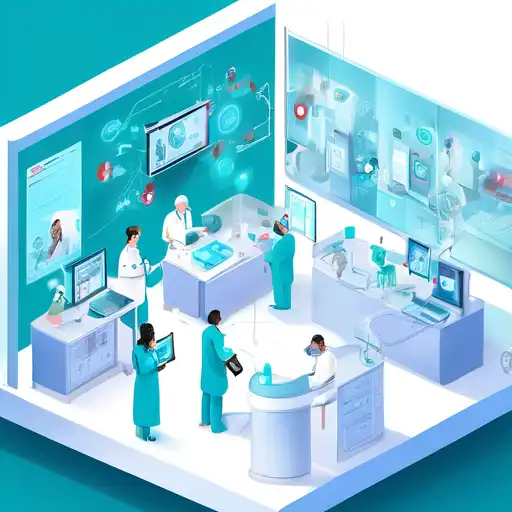Introduction to IoT in Healthcare
The integration of the Internet of Things (IoT) into healthcare services is revolutionizing the way medical care is delivered. By enabling real-time monitoring, improving patient outcomes, and reducing healthcare costs, IoT is setting a new standard in the medical field.
Key Benefits of IoT in Healthcare
IoT technology offers numerous advantages in healthcare, including enhanced patient monitoring, improved treatment accuracy, and streamlined hospital operations. Below are some of the key benefits:
- Real-time Patient Monitoring: Wearable devices and sensors provide continuous health data, allowing for immediate medical intervention when necessary.
- Improved Treatment Accuracy: IoT devices ensure precise medication dispensing and treatment plans based on accurate data collection.
- Operational Efficiency: Hospitals utilize IoT for asset tracking, inventory management, and optimizing staff workflows.
IoT Applications in Healthcare
From remote monitoring to smart hospitals, IoT applications are vast and varied. Here are some notable examples:
- Remote Patient Monitoring (RPM): Enables healthcare providers to monitor patients outside of conventional clinical settings.
- Smart Pills: Ingestible sensors that track medication adherence and physiological responses.
- Wearable Health Monitors: Devices like smartwatches that track heart rate, sleep patterns, and physical activity.
Challenges and Solutions
Despite its benefits, IoT in healthcare faces challenges such as data security and interoperability. Addressing these concerns involves:
- Enhancing Cybersecurity: Implementing advanced encryption and authentication protocols to protect patient data.
- Improving Interoperability: Developing universal standards for IoT devices to ensure seamless communication across platforms.
Future of IoT in Healthcare
The future of IoT in healthcare is promising, with advancements in AI and machine learning further enhancing its capabilities. Potential developments include more personalized medicine and automated diagnostic tools.
Conclusion
IoT is transforming healthcare by improving patient care, operational efficiency, and treatment accuracy. As technology evolves, the potential for IoT in healthcare continues to expand, promising a healthier future for all.
